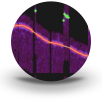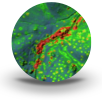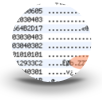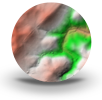
|
Various raw waveform data processing tasks
-
Deconvolution
remove ringing artifacts that causes unwanted underground returns
-
Pulse extraction
estimate robust peak timing and properties (amplitude, width), with higher accuracy and sensitivity than commonly used proprietary software
-
System calibration
use collected data to model the impulse response and noise properties, as required by deconvolution and pulse extraction
-
Decomposition
extract multiple returns for vegetation applications, compression or visualization
-
Optimal subsampling
resample the data without losing information, for further processing, compression or visualization
|

|
Range uncertainty computation
-
Fast range uncertainty
predict uncertainty based on extracted peak properties, after calibration
-
Bayesian range error propagation
predict uncertainty using peak modeling and Bayesian inference
|
|

|
Reverse engineering
-
Proprietary format decoding
raw binary data file decoding using sample binary files and available documents;
examples: Riegl LMS-Q680i, LMS-Q780 (sdf format)
-
Instrument modeling
build a geometric/radiometric model to enable data processing without the bundled proprietary software, thus allowing to overcome its limitations
|

|
Elevation model generation and change detection – for research purposes
-
DEM generation
compute accurate gridded elevation products using innovative techniques
-
Vegetation filtering
generate bare-ground models using unique probabilistic methodology
-
Change detection
analyze multidate DEM or point clouds (align them if necessary),
to build maps of statistically significant changes
-
Matching and registration
infer the 3D deformation (rigid or non-rigid) between multidate DEM or point clouds using ground-breaking methodology;
application examples: post-earthquake damage assessment, ground deformation measurement
|
|



